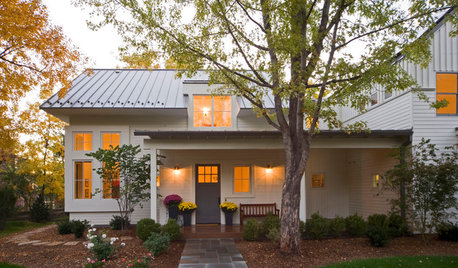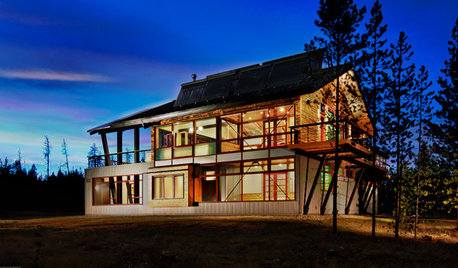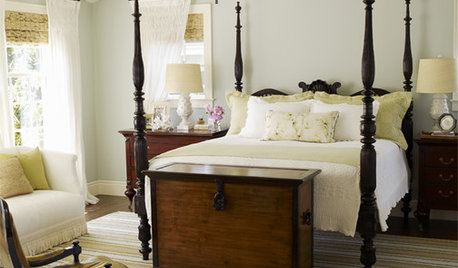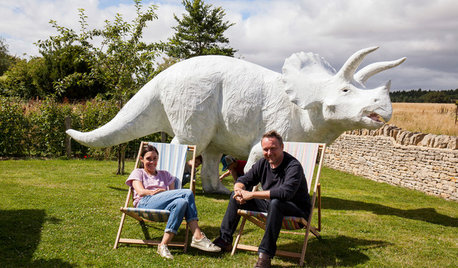need help with British terms
woodnymph2_gw
9 years ago
Related Stories

ECLECTIC HOMESHouzz Tour: Swanky and Playful in the British Countryside
Big beanbags, a Bubble chair, lacy black laquer — this family home proves there's more to U.K. country life than cottages and chintz
Full Story
Storage Help for Small Bedrooms: Beautiful Built-ins
Squeezed for space? Consider built-in cabinets, shelves and niches that hold all you need and look great too
Full Story
SELLING YOUR HOUSEHelp for Selling Your Home Faster — and Maybe for More
Prep your home properly before you put it on the market. Learn what tasks are worth the money and the best pros for the jobs
Full Story
GREEN BUILDINGZero Net Energy: A Hardworking-House Term to Know
Homes that consume only as much energy as they produce by renewable means are a goal for builders. Learn what ZNE means for you
Full Story
DECORATING GUIDESSmall Changes to Simplify Your Long-Term Storage
Conquer your attic and basement storage in more than a day, with these easy, bite-size steps for sorting, storing and protecting your stuff
Full Story
DECORATING GUIDES13 Decorating Tips for Short-Term Renters
Mirrors, curtains, lamps and other features set a stylish tone you can take with you
Full Story
COFFEE WITH AN ARCHITECTFlash Cards for Common Architectural Terms
Architect takes a stab at the language of design
Full Story
Houzz Tour: A House Built for the Long Term
The designers of this one-of-a-kind home made the most of its challenging location to deliver enduring comfort and style
Full Story
DECORATING STYLES9 Ways to Bring Home a Little British Colonial Style
On a redecorating campaign? Try some tropical accents mixed with dark woods, portable furnishings and a touch of formality
Full Story
WORLD OF DESIGNA Brief History of British Eccentricity
Britain is famous for its quirky characters. And some of the nation’s best interiors reflect this collective trait wonderfully
Full Story


veer
woodnymph2_gwOriginal Author
Related Discussions
long term babysitter of AV needs a little help!
Q
Need Help Increasing Organic Matter on 3 acres - Long Term Plan
Q
Need long-term vision for water supplies
Q
need help with knitting term
Q
friedag
veer
woodnymph2_gwOriginal Author
carolyn_ky
friedag
annpan
friedag
annpan
Kath
annpan
woodnymph2_gwOriginal Author
veer
carolyn_ky
friedag
veer
woodnymph2_gwOriginal Author
sheriz6
yoyobon_gw
annpan
veer
maxmom96
veer
lemonhead101
annpan
veer
lemonhead101
friedag
annpan
veer
yoyobon_gw
friedag
woodnymph2_gwOriginal Author
veer
friedag
annpan
friedag
veer
annpan
carolyn_ky
veer
woodnymph2_gwOriginal Author
friedag
carolyn_ky
veer
lemonhead101
Kath
lemonhead101
junek-2009